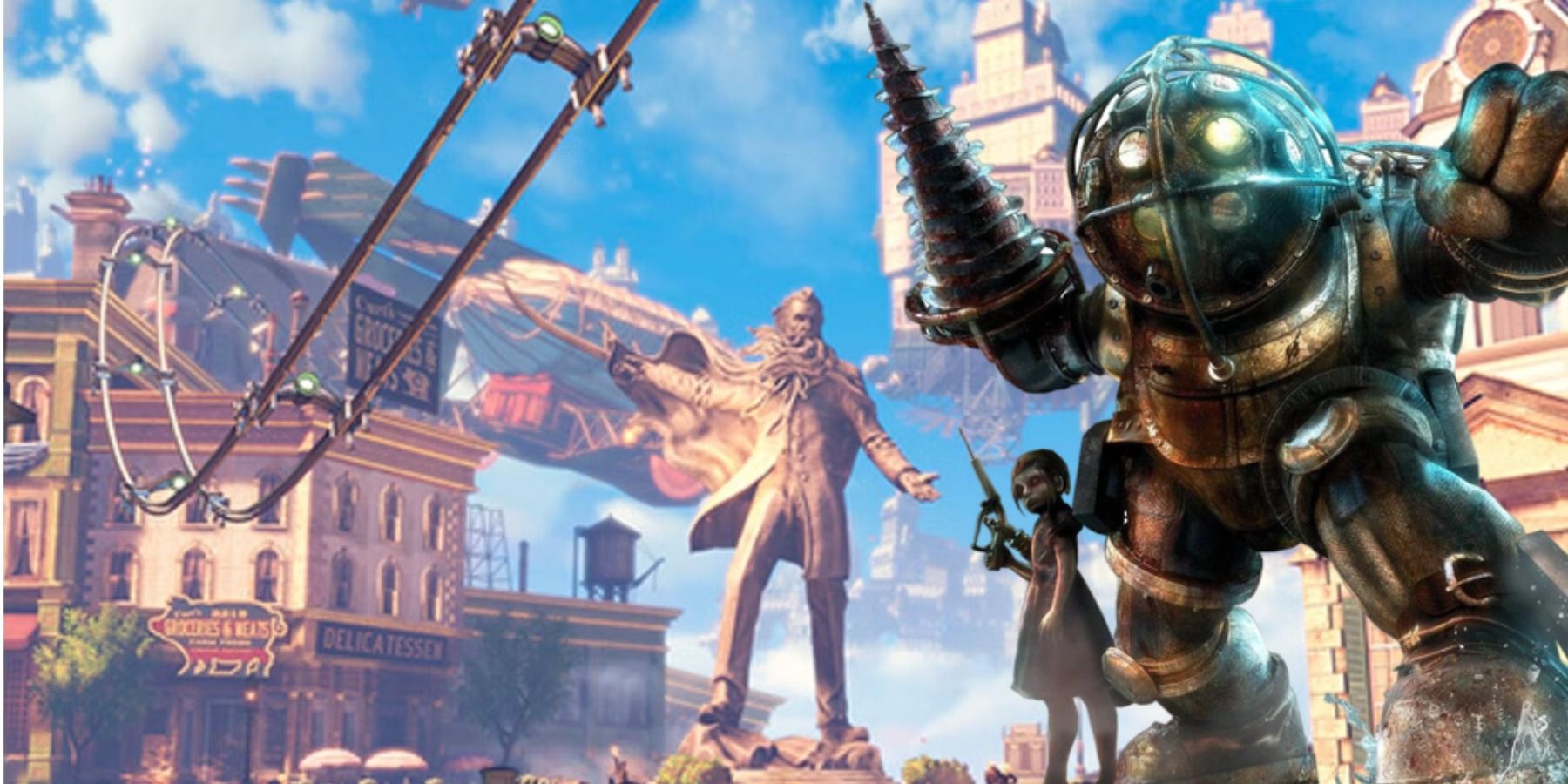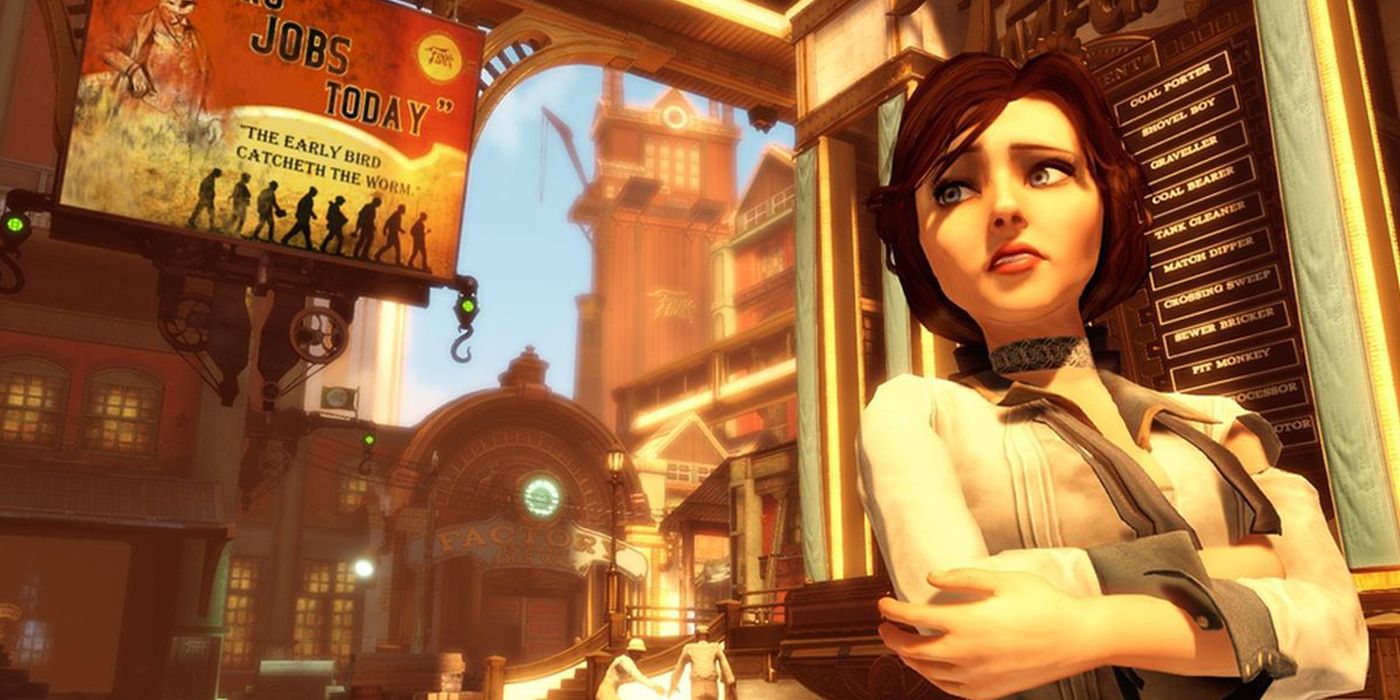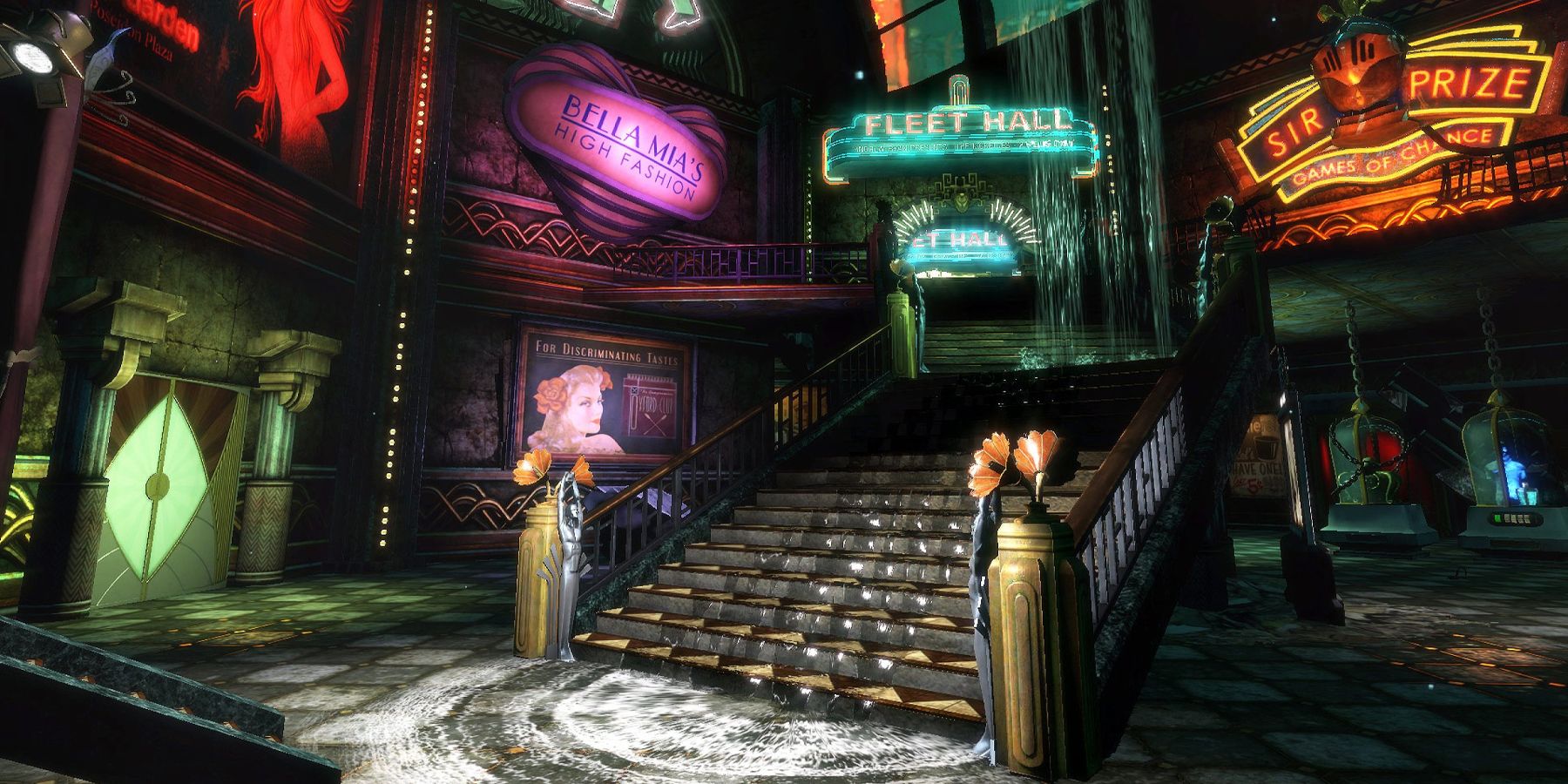First-person shooters are sometimes given the reputation of being competitive, twitchy, and difficult for new fans to get into. This may be true of titles like Call of Duty or Apex Legends where the learning curve is steep, but the format is ripe for some fascinating experiences, and games like Portal and Return of the Obra Dinn have proved that first-person titles can be creative. Deus Ex was one of the first to offer innovation, but it took inspiration from System Shock 2, which had a considerable hand in the success of BioShock. Irrational Games did something revolutionary with its 1999 release, with environmental storytelling and tone taking precedence over pinpoint gameplay, but it is not the magnum opus of the now-rebranded studio.
That honor goes to the sublime BioShock series; three games released from 2007-2013 that refined System Shock 2's philosophy while developing upon its ideas and taking advantage of the updated hardware. BioShock 2 is, of the three, the one that is most overlooked as it didn't feel like enough of a departure from what came before, but the first game and BioShock Infinite prop up the trilogy to be one of the best in gaming. They each feel different in approach while sharing common themes and executing inherently political storytelling with grace. The series' greatness is solidified because of the pair, and Cloud Chamber will surely be eager to recapture the lightning in the bottle.
How BioShock Infinite's Columbia Uses Colors and Horror Themes
Where BioShock's underwater dystopia was used to build tension, BioShock Infinite instead lifted the story to the gorgeous streets of Columbia, a city in the clouds paved with early 20th-century American charm and joyous residents. All is not rosy, however, and players are startlingly reminded that it still comes from the mind of Ken Levine. Columbia is far from perfect as the bright colors and heavenly aura are a smokescreen that's hiding a far more sinister setting. It subverts expectations beautifully, and some lines have much more weight when the game concludes.
BioShock Infinite introduces the concept of a multiverse that doesn't feel artificial or forced. The game doesn't present alternate versions of key characters until the end, so the story is easy to follow, and character development remains linear throughout. Booker's relationship with Elizabeth begins as a reluctant partnership but develops into a strong friendship - one where both people rely on each other to help them to reach the game's stunning conclusion. It can be convoluted at times, but BioShock Infinite is a deeply intelligent end product, and one that warrants further analysis after the credits roll, but it can absolutely be enjoyed as a colorful, fun shooter for casual fans as well.
BioShock's Glorious Atmosphere Contributes to Its Success
On the surface, BioShock may seem like a somewhat cookie-cutter first-person thriller, but something greater lurks beneath. It's a joy to play, with guns taking a backseat to the plasmids that can be used to get creative with combat, and the enemy variety makes each encounter interesting. Big Daddies are docile until attacked, and the most important antagonists often work behind the scenes, making protagonist Jack's journey feel all the more lonely, which feeds into the atmosphere. Fundamentally, its narrative is a response to Ayn Rand's works, and BioShock wears its political influences on its sleeve.
Rapture as a setting in BioShock is one of the finest in fiction. Its eerie districts are all unique, but the tense, claustrophobic tone never lets up. It's at the heart of the game's success, with much of the story being drip-fed to the player through audio diaries which can easily be missed. It requires more of the player than BioShock Infinite, and exploration is rewarded with some of the game's immense personalities like the overconfident and cold Dr. Suchong or the remorseful, charitable Brigid Tenenbaum. It's a sublime survival horror experience at its core, but with the context of the audio diaries, it becomes far more than the sum of its parts.



